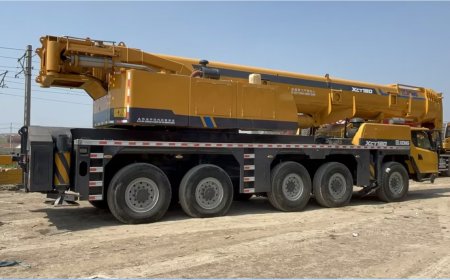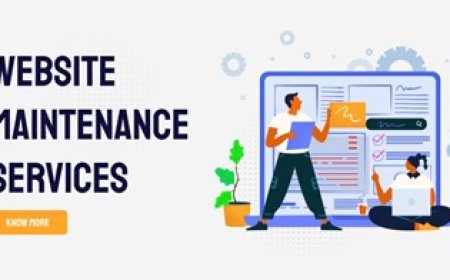Strategies to Excel in Data-Driven Interviews
Ace data-driven interviews with practical prep tips and mock projects. A data scientist course in Hyderabad builds skills and confidence for top tech roles.
In today's competitive tech landscape, interviews have evolved beyond basic Q&A sessions. For roles in data science, companies now focus heavily on real-world problem-solving, data interpretation, and statistical thinking. These data-driven interviews are designed to evaluate not only technical competence but also critical thinking and communication skills.
With the rising demand for data scientists across industries, it's no surprise that educational paths such as a data scientist course in Hyderabad are helping candidates develop the right skills to tackle such interviews confidently. However, cracking a data-driven interview requires more than just academic trainingit demands a structured approach, practical readiness, and psychological preparedness.
Understand the Interview Format
The first step is to understand what a data-driven interview typically entails. Unlike conventional interviews, these sessions may include:
-
Case studies involving real datasets
-
Technical rounds focusing on Python, R, SQL, or Excel
-
Problem-solving tasks requiring algorithms or model building
-
Interpretation of data visualisations
-
Business scenario-based questions
Being aware of these formats allows you to structure your preparation accordingly. For example, if you're likely to face SQL queries, practising nested joins and window functions will be more beneficial than memorising syntax.
Master the Fundamentals
Regardless of how advanced the interview questions are, the underlying concepts often revolve around core fundamentals. Brush up on statistics, probability, data cleaning techniques, feature engineering, and machine learning algorithms. Know the differences between classification and regression, supervised vs. unsupervised learning, and understand metrics like precision, recall, F1-score, and ROC-AUC.
Employers dont just assess whether you can code a logistic regressionthey evaluate if you understand when and why to use it. Hence, conceptual clarity is essential.
Practice Real-World Scenarios
Many data-driven interviews are designed to simulate real industry challenges. You may be asked to solve problems such as:
-
Increasing user retention for a mobile app
-
Detecting fraud based on transaction history
-
Recommending products using user behaviour data
To prepare, take on open datasets from platforms like Kaggle and practice building end-to-end projects. This includes data cleaning, exploratory data analysis (EDA), model selection, and evaluation. Document your thought process clearly, as interviewers often focus on your approach as much as the final solution.
Hone Your Communication Skills
Data scientists must communicate technical findings to both technical and non-technical audiences. Practice articulating your project outcomes, model assumptions, and limitations.
Additionally, focus on storytelling with data. Instead of merely showing a graph, explain what the graph reveals and how it supports decision-making. If possible, engage in mock interviews with peers or mentors and ask for feedback on your explanation style.
Stay Current with Industry Trends
Data science is a dynamic field. Familiarity with the latest tools, libraries, and techniqueslike AutoML, deep learning frameworks, or large language modelscan set you apart. While you dont need to master every trend, being conversant about emerging topics shows that you are enthusiastic and adaptable.
Reading research papers, following popular data science blogs, and joining communities on LinkedIn or Reddit can help you stay informed. Employers appreciate candidates who display genuine curiosity and initiative.
Prepare for Behavioural Questions
While technical proficiency is vital, soft skills are equally important. Expect questions like:
-
Tell me about a time you solved a complex data problem.
-
How do you handle disagreements with stakeholders on data interpretation?
-
Describe a situation where your model failed. What did you learn?
Frame your responses using the STAR method (Situation, Task, Action, Result). Highlight your ability to collaborate, handle feedback, and take initiative.
Perform a Post-Mortem After Each Interview
Regardless of whether you pass or fail a round, reflect on the experience. Which questions caught you off-guard? Did you explain your models effectively? Were there moments where you could have asked better clarifying questions?
This introspection will help you refine your approach continuously. Keep a journal or spreadsheet to track your interview experiences, common questions, and personal improvements.
Use Structured Learning to Fill Gaps
If you consistently find yourself struggling with specific aspectssay, time series forecasting or natural language processingconsider taking up targeted courses or certifications. Structured learning helps you build confidence in those areas.
A well-curated data scientist course not only equips learners with practical tools but also exposes them to mock interview sessions, capstone projects, and real-time mentoring. This can significantly accelerate your readiness for interviews.
Conclusion: Success Lies in Consistency and Confidence
Excelling in data-driven interviews requires a mix of technical mastery, business understanding, and communication finesse. Rather than trying to predict every question, focus on developing a strong foundation and practising diverse problem scenarios. Emphasise your ability to think critically, present solutions clearly, and learn from feedback.
Structured preparation, combined with the right mindset, will dramatically boost your chances. Whether youre a fresher or a working professional, courses such as a data scientist course in Hyderabad can provide the stepping stones, but sustained practice and adaptability will ultimately define your success in the interview room.






















